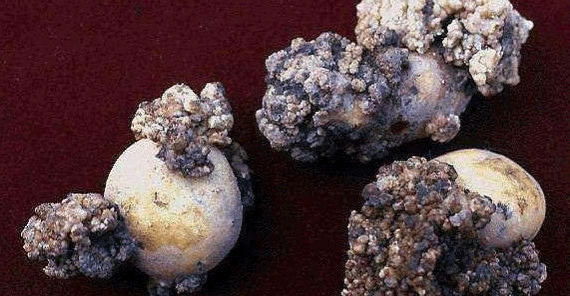Protecting America’s Potato Crops: Senators Urge USDA to Take Action Against Potato Wart
In a significant bipartisan move, U.S. Senators Ron Wyden (D-OR) and Mike Crapo (R-ID) have led a group of Senate colleagues in urging the U.S. Department of Agriculture (USDA) to take decisive action to protect America’s potato crops from the devastating effects of potato wart. This disease, which originates from potato imports from Canada’s Prince Edward Island (PEI), poses a severe threat to the U.S. potato industry, which is a critical economic driver for many farming communities.
The Threat of Potato Wart
Potato wart is a highly destructive soil-borne disease caused by the fungus Synchytrium endobioticum. It can significantly reduce potato yields and render crops unmarketable both domestically and internationally. One of the most alarming aspects of potato wart is its persistence; the disease can remain viable in soil for decades, making contaminated farmland unusable for potato cultivation. As there is currently no effective treatment to eliminate potato wart from affected soil, preventing its introduction is of paramount importance.
In their letter to USDA Secretary Thomas Vilsack, the senators highlighted the economic stakes involved. They noted that 20 percent of the U.S. potato crop, valued at over $2 billion, is exported. The introduction of potato wart could devastate the U.S. potato industry, cutting off access to international markets and severely impacting domestic production and sales.
Current Measures and Gaps
Although the USDA has regulations in place to manage the risk of potato wart, the senators expressed concerns about gaps in the current system. Specifically, they pointed out that the USDA does not require soil testing of PEI fields before potatoes are cleared for export to the United States. Given the severity of the disease, this oversight could have catastrophic consequences.
To address these concerns, the senators proposed three key actions to mitigate the risk:
- Restrict Bulk Shipments: Bulk shipments of potatoes often lead to significant waste, which can spread potato wart. The senators recommend limiting these shipments to smaller sizes (20 pounds or less) to contain waste within Canada.
- Limit Retail Shipments and Inform Consumers: There is a risk that consumers might plant infected potatoes in home gardens, unknowingly spreading the disease. The USDA should limit retail shipments to consumer pack sizes and educate the public about the risks of cultivation.
- Control Processing Facility Waste: Processing facilities generate substantial waste that can transmit potato wart. The senators urge the USDA to supervise these facilities closely and ensure proper treatment of biohazard waste, preventing it from being used as livestock feed.
Industry Support and Broader Implications
Gary Roth, Executive Director of the Oregon Potato Commission, emphasized the critical nature of these protective measures. He stated, “Potato wart entering the United States from Prince Edward Island in Canada has been and continues to be a significant threat to U.S. potato farmers. If the disease enters the United States, the impact would be devastating not just to U.S. potato farmers, but also to the domestic and international supply chain.”
The letter, co-signed by a broad coalition of senators from both parties, underscores the bipartisan recognition of the importance of protecting the U.S. potato industry. Senators Angus King (I-ME), Susan Collins (R-ME), John Hickenlooper (D-CO), James Risch (R-ID), and others joined Wyden and Crapo in calling for these essential measures.
The bipartisan effort led by Senators Wyden and Crapo reflects the high stakes involved in preventing the spread of potato wart. By urging the USDA to implement stricter controls on Canadian potato imports, they aim to protect the livelihoods of American farmers and the broader agricultural economy. It is imperative that the USDA takes swift and decisive action to safeguard this vital crop from a potentially devastating disease.





